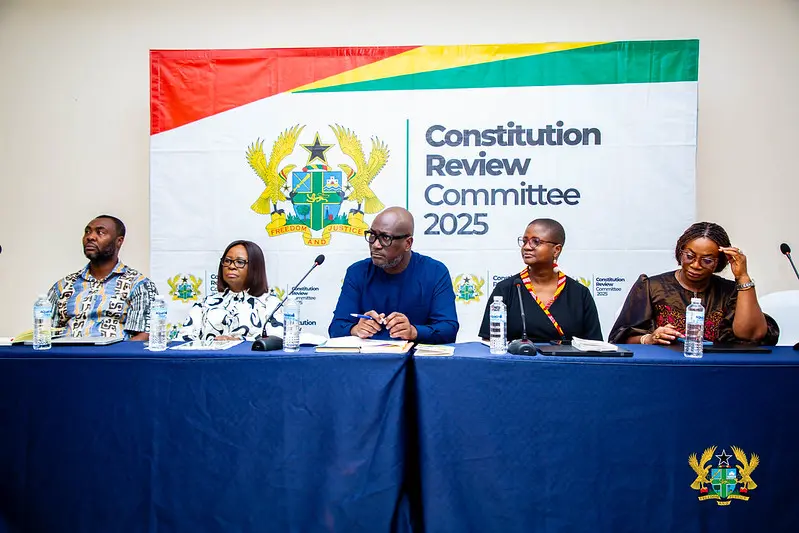The Constitution Review Committee (CRC) of Ghana is nearing the culmination of its public consultation phase, a crucial step in the ongoing review of the nation’s 1992 Constitution. The Committee has reiterated its dedication to a transparent, inclusive, and citizen-driven process, emphasizing the importance of public participation in shaping the future of Ghana’s constitutional framework. With the final public engagements scheduled with the Council of State and the Trades Union Congress (TUC), the CRC is urging all Ghanaians to seize the remaining opportunity to contribute their perspectives through written memoranda. This final call for submissions underscores the Committee’s commitment to incorporating a wide range of voices and viewpoints into the review process.
The comprehensive review process embarked upon by the CRC involved a series of zonal consultations held across the country, culminating in a final session in Kumasi. These public forums served as vital platforms for gathering input directly from citizens, providing them with an opportunity to express their views on potential constitutional reforms. The discussions centered on aligning the Constitution with Ghana’s contemporary democratic and socio-economic landscape. The information gathered during these consultations will form the basis of the CRC’s recommendations for amendments and revisions to the existing constitutional framework. By engaging directly with the public, the CRC has aimed to ensure that the review process accurately reflects the needs and aspirations of the Ghanaian people.
The success of the public consultation phase can be attributed in large part to the collaborative efforts of various stakeholders. The National Commission for Civic Education (NCCE) played a pivotal role in coordinating the regional engagements, ensuring broad participation from across the country. Traditional authorities, including chiefs and Tindaana, lent their influence and wisdom to the process, contributing valuable perspectives rooted in traditional governance structures. Regional ministers and Metropolitan, Municipal, and District Chief Executives (MMDCEs) provided critical support at the local level, facilitating the organization and execution of the consultations within their respective jurisdictions.
Furthermore, the active participation of civil society groups ensured that diverse voices were heard and represented. These organizations brought a wealth of expertise on a range of issues relevant to the constitutional review, advocating for specific reforms and highlighting areas requiring attention. The inclusion of persons with disabilities (PWDs) in the consultation process underscored the CRC’s commitment to inclusivity and ensured that the revised Constitution would address the needs and rights of all Ghanaians. The broader public’s engagement through attending forums and submitting written memoranda contributed significantly to the breadth and depth of the feedback received by the Committee.
The CRC profoundly appreciates the collaborative efforts of all these stakeholders in making the public consultation phase a resounding success. Their contributions have been invaluable in shaping the direction of the constitutional review and ensuring that the process is truly representative of the Ghanaian populace. The diverse range of perspectives gathered will enable the CRC to develop comprehensive and well-informed recommendations for constitutional reforms that reflect the evolving needs and priorities of the nation.
As the CRC prepares to transition from the public consultation phase to the next stage of the review process, the focus will shift to analyzing the collected data and formulating concrete proposals for constitutional amendments. The Committee will meticulously review the written memoranda and feedback received during the public forums, identifying key themes and consensus points. Drawing upon this wealth of information, the CRC will draft a report outlining its recommendations for constitutional reforms, which will then be submitted to the relevant authorities for consideration and potential implementation. The CRC remains steadfast in its commitment to ensuring a transparent and inclusive review process that ultimately strengthens Ghana’s constitutional framework and promotes democratic governance.


